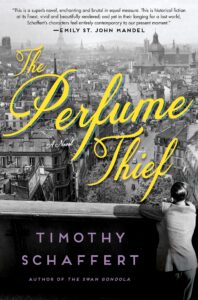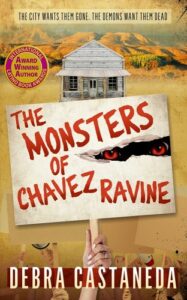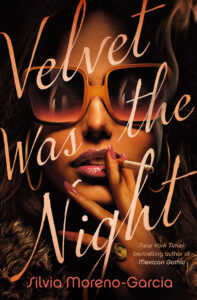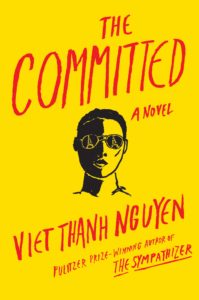I know, I know, this list is so 20th century it’s embarrassing (although maybe we’re now far enough into the 21st century that the 20th has at last taken firm shape in our imaginations). Perhaps I was just more interested in reading about a century characterized by sweeping historical changes, rather than novel diseases, or perhaps there were just a lot of really good books out this year and I can’t read everything, ok? For whatever reason, the books below lean heavily interwar and midcentury, yet diverge significantly in what they choose to explore and reinterpret from these eras, as well as which silenced voices they bring to the fore. These books also range all over the globe for a decidedly international flair, and each one is as enjoyable as it is well-researched. This year’s crop of historical fiction is also particularly playful and intertextual, full of subtle easter eggs of invented detail that feel true to the way people in the past would think, and that’s an achievement to be celebrated.
Without further ado, here are the best historical crime novels of the year, arranged, of course, in chronological order.

Lucy Jago, A Net for Small Fishes
(Flatiron)
Setting: Essex, Jacobean Era
While it’s not difficult to find historical fiction firmly grounded in noir style, a psychological thriller set in the past is much rarer a find, and should justly be celebrated. In Lucy Jago’s A Net for Small Fishes, the classic suspense set-up of close female friendship spiraling into obsessive and even murderous behavior gets a Jacobean touch-up, in what’s perfectly described by the publisher as “Wolf Hall meets The Favourite.”

Sarah Penner, The Lost Apothecary
(Park Row)
Setting: London, Late 18th Century
Already optioned for an upcoming television series, Sarah Penner’s The Lost Apothecary makes for some fantastic reading. Penner splits her narrative between the late 18th century, where a lonely woman concocts poisons to use against the men who’ve wronged her clients and slowly bonds with a bright urchin, and the 21st century, where a woman reeling from her husband’s infidelity finds traces of the old apothecary, and perhaps some of its secrets. Immersive without feeling overly detailed, and balance well between the mores of the time and the needs of contemporary readers, The Lost Apothecary is the perfect historical novel to enjoy this holiday season.

Jonathan Lee, The Great Mistake
(Knopf)
Setting: New York City, 1903
From the author of High Dive comes another rich and riveting work of character-driven historical fiction. The Great Mistake opens with the 1903 assassination of famed city planner Andrew Haswell Green, the man responsible for Central Park, the NYPL, and the MET. From there, Lee takes us back though the life of this complex, conflicted, deep-feeling man as he rises from the humblest of beginning to become “the Father of Greater New York,” all the while haunted by a longing he can never truly express. A triumph of humane historical portraiture, and one of the finest and most pleasurable New York novels I have ever read. –Dan Sheehan, BookMarks Editor-in-Chief

Sujata Massey, The Bombay Prince
(Soho)
Setting: Bombay (Mumbai), 1921
Bombay, 1921: the British imperial yoke continues to tighten, even as Indian nationalism continues to grow in the face of reaction against the policies of the first world war. Into this power keg steps Perveen Mistry, Sujata Massey’s brilliant and and quick-witted lawyer, approached by a student to intercede in a government crackdown. When her client is found dead, Perveen Mistry suspects the young woman’s untimely demise to be less than accidental, and dives head-first into a murky morass of colonial politics and independence movements in order to uncover the truth.

Lori Rader-Day, Death at Greenway
(William Morrow)
Setting:
I’ve been following Lori Rader-Day’s career from the get-go, so I couldn’t be happier seeing her achieve the recognition she deserves with the elegant and atmospheric Death at Greenway, set during WWII at one of Agatha Christie’s country estates. In this a clever take on the historical thriller, Agatha Christie’s former home plays a prominent role while the Queen of Crime herself stays out of the narrative, yielding to the ordinary Britons who must solve a mystery while sheltering children in the countryside as the Blitz rages.

Timothy Schaffert, The Perfume Thief
(Doubleday)
Setting: Paris, 1943
In occupied Paris, a Nazi searches for a parfumier’s secret recipe book, while an aging thief is recruited by a demimondaine to seek the same prize—and keep it safe from the doughy Prussian, who is desperate to hold onto his comfortable bureaucratic existence through securing a valued cultural treasure. As the two play a dangerous game of cat and mouse, they also bond over the struggles of queer life, where sensual delights hold coded meanings, and every woman who loves other women seeks to perfume herself with the heavenly scent of Gabrielle.

Debra Castaneda, The Monsters of Chavez Ravine
(Second Rodeo Books)
Setting: Los Angeles, 1952
There’s been a number of good gentrification thrillers released over the past few years, but Debra Castaneda’s The Monsters of Chavez Ravine has got to be the strangest. In 1952 Los Angeles, a formerly tight-knit Latinx community is being pushed out of their homes by a cabal of city planners and corporate stooges, and the remaining residents must unite to fight off an otherworldly threat that proves to be all too vulnerable to this world’s weaponry. You’ll find yourself cheering for the novel’s heroes and appreciating its unusual historical setting, grounded in the fallout from the Zoot Suit Riots a decade earlier.

Christine Mangan, Palace of the Drowned
(Flatiron)
Setting: Venice, 1966
What a perfectly timed novel to make us miss the fashions of the 1960s! Former wunderkind Francis Croy is wintering in Venice, desperate to recapture the poignant urgency of her youthful writing, but only able to pound out formulaic drafts that go immediately to the dustbin. While on her sojourn, she meets the much younger Gilly, dressed in bold new fashions and with an experimental new writing style that makes Francis, still clad in 50s-era cigarette slacks, realize her time in the sunlight may be finished. As the two get closer, and the weather in Venice turns from bad to deadly, a confrontation looms between the women and their respective eras that reflects all the schisms of the mid-sixties.

Silvia Moreno-Garcia, Velvet Was The Night
(Del Rey)
Setting: Mexico City, 1968
A lonely secretary who lives for the latest issue of her favorite romance comics finds herself dropped into the midst of a real-life adventure when she becomes temporary guardian to her neighbor’s cat. The neighbor, it turns out, is deeply involved with student groups facing vicious government crackdowns, and as Moreno-Garcia’s plucky heroine tries to track her down, she encounters a complex set of characters who are not easily reduced to the roles they have been forced to play. I like to describe this book as a more political Romancing the Stone, in that it shares the same electric charm of an ordinary life that for a brief and glorious moment, becomes extraordinary.

Viet Thanh Nguyen, The Committed
(Grove)
Setting: Paris, 1970s
In Viet Thanh Nguyen’s highly anticipated followup to his brilliant novel of double agents and doubled identities, The Sympathizer, Nguyen’s hero has found refuge in a 1970s Paris roiling with rebellious intent and proliferating philosophies, as he finds himself trapped into working for a group of sartorially decadent gangsters and poring over the anti-colonialist works of Franz Fanon. A delightful, thrilling tale that sets us up perfectly for a third installment of the series (please please please let there be a third).
___________________________________
NOTABLE SELECTIONS
___________________________________
Gin Phillips, Family Law (Viking) · Robert Lloyd, The Bloodless Boy (Melville House) · Nekesa Afia, Dead Dead Girls (Atria) · Alison Epstein, A Tip for the Hangman (Doubleday) · Caitlin Starling, The Death of Jane Lawrence (St. Martin’s) · Natashia Deon, The Perishing (Counterpoint) · Abir Mukherjee, The Shadows of Men (Pegasus) · Paraic O’Donnell, The House on Vesper Sands (Tin House) · Kate Quinn, The Rose Code (William Morrow) · Chris Bohjalian, Hour of the Witch (Doubleday) Alka Joshi, The Secret Keeper of Jaipur (MIRA) · Erika Robuck, The Invisible Woman (Berkley) · John Copenhaver, The Savage Kind (Pegasus) · Jacqueline Winspear, The Consequences of Fear (Harper) · Stephanie Marie Thornton, A Most Clever Girl (Berkley) · Natasha Pulley, The Kingdoms (Bloomsbury)

















